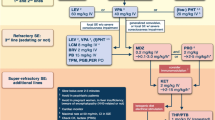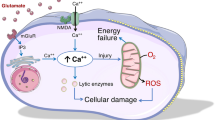Abstract
Objective
To study the long-term neurological and developmental outcome and the clinical and laboratory predictors of sequelae in children with acute bacterial meningitis (ABM).
Methods
Detailed clinical and demographic data was retrieved from the medical records of study children. Subsequently they were followed up for a minimum of 12 months after discharge for development, neurological and hearing assessment. All sequelae were identified and divided into minor or major. For analysis data was divided into 2 groups those with sequelae and without sequelae at follow-up. Statistical analysis was done using SPSS version 10.00 and Epi Info version 2000.
Results
61 boys and 19 girls, a mean age of 31.4±41.9 months at the time of ABM, were included in the study. Of these 62.5% children were infants. Mean age at follow-up was 58.6 ± 47.2 months. Sequelae were observed in 32 (40%) children (8 (10%) minor and 24 (30%) major). Mean social quotient at follow-up was 92.8 ± 32.6. Developmentally 22 (37.9%) children were normal and 20 (34.5%) had global delay. Seizures (P=0.015), cranial nerve palsy (P=0.0065), abnormal deep tendon reflexes (P=0.002), Glasgow coma scale score (GCS) < 8 (P = 0.044) at admission, a CSF culture positive for bacteria and abnormal findings on ultrasonography or computed tomography of head at admission had significant association with sequelae at follow-up. All children (7/7) who had infarct on CT scan (P=0.001) and 12 (80%) of 15 patients who had hydrocephalus (OR-9.0, 95% Cl-2.03-45.6, P=0.001) diagnosed on CT scan developed severe sequelae. On multiple regressions GCS score <8, presence of cranial nerve palsy and abnormal deep tendon reflexes were independent predictors of sequelae.
Conclusion
Neurological and audiological sequelae and global developmental delay may be seen in about one third of survivors of bacterial meningitis. GCS score <8, presence of infarct or cranial nerve palsy, or hydrocephalous on CT/ultrasound at admission may help in identification of children most likely to need long term follow up and rehabilitation.
Similar content being viewed by others
References
Peltola H. Burden of meningitis and other severe bacterial infections of children in africa: implications for prevention. Clin Infect Dis 2001; 32: 64–75.
Weber MW, Herman J, Jaffar S et al. Clinical predictors of bacterial meningitis in infants and young children in The Gambia. Trop Med Int Health 2002; 7: 722–731.
Peltola H. Haemophilus influenzae type b disease and vaccination in Latin America and the Caribbean. Pediatr Infect Dis J 1997; 16: 780–787.
Baraff LJ, Lee SI, Schriger DL. Outcomes of bacterial meningitis in children: a meta-analysis. Pediatr Infect Dis J 1993; 12: 389–394.
Grimwood K, Anderson P, Anderson V, Tan L, Nolan T. Twelve year outcomes following bacterial meningitis: further evidence for persisting effects. Arch Dis Child 2000; 83: 111–116.
Halket S, de Louvois J, Holt DE, Harvey D. Long term follow up after meningitis in infancy: behaviour of teenagers. Arch Dis Child 2003; 88: 395–398.
Fellick JM, Sills JA, Marzouk O, Hart CA, Cooke RW, Thomson AP. Neurodevelopmental outcome in meningococcal disease: a case-control study. Arch Dis Child 2001; 85: 6–11.
Bedford H, de Louvois J, Halket S, Peckham C, Hurley R, Harvey D. Meningitis in infancy in England and Wales: follow up at age 5 years. BMJ 2001; 323: 533–536.
Berg S, Trollfors B, Hugosson S, Fernell E, Svensson E. Long-term follow-up of children with bacterial meningitis with emphasis on behavioural characteristics. Eur J Pediatr 2002; 161: 330–336.
Oostenbrink R, Moons KG, Derksen-Lubsen G, Grobbee DE, Moll HA. Early prediction of neurological sequelae or death after bacterial meningitis. Acta Paediatr 2002; 91: 391–398.
Anderson V, Anderson P, Grimwood K, Nolan T. Cognitive and executive function 12 years after childhood bacterial meningitis: effect of acute neurologic complications and age of onset. J Pediatr Psychol 2004; 29: 67–81.
Oostenbrink R, Maas M, Moons KG, Moll HA. Sequelae after bacterial meningitis in childhood. Scand J Infect Dis 2002; 34: 379–382.
Goetghebuer T, West TE, Wermenbol V et al. Outcome of meningitis caused by Streptococcus pneumoniae and Haemophilus influenzae type b in children in The Gambia. Trop Med Int Health 2000; 5: 207–213.
Wandi F, Kiagi G, Duke T. Long-term outcome for children with bacterial meningitis in rural Papua New Guinea. J Trop Pediatr 2005; 51: 51–53.
Hodgson A, Smith T, Gagneux S et al. Survival and sequelae of meningococcal meningitis in Ghana. Int J Epidemiol 2001; 30: 1440–1446.
Salih MA, Khaleefa OH, Bushara M et al. Long term sequelae of childhood acute bacterial meningitis in a developing country. A study from the Sudan. Scand J Infect Dis 1991; 23: 175–182.
George CN, Letha S, Bai SS. A clinical study of chronic morbidity in children following pyogenic meningitis. Indian Pediatr 2002; 39: 663–667.
Chinchankar N, Mane M, Bhave S et al. Diagnosis and outcome of acute bacterial meningitis in early childhood. Indian Pediatr 2002; 39: 914–921.
Amiel-Tison C, Koroboklin R, Klaus MH. Neurologic problems in care of the high risk neonate. WB Saunders CO 1986; 379–85.
Malin AJ. Vineland Social Maturity Scale (Doll) Nagpur adaptation. Test items and manual instructions. Nagpur Child Guidance Centre 1968; 1–7.
Klein JO, Feigin RD, McCracken GH Jr. Report of the Task Force on Diagnosis and Management of Meningitis. Pediatrics 1986; 78: 959–982.
Herson VC, Todd JK. Prediction of morbidity in Hemophilus influenzae meningitis. Pediatrics 1977; 59: 35–39.
Letson GW, Gellin BG, Bulkow LR, Parks DJ, Ward JI. Severity and frequency of sequelae of bacterial meningitis in Alaska Native infants. Correlation with a scoring system for severity of sequelae. Am J Dis Child 1992; 146: 560–566.
Pomeroy SL, Holmes SJ, Dodge PR, Feigin RD. Seizures and other neurologic sequelae of bacterial meningitis in children. N Engl J Med 1990; 323: 1651–1657.
Jadavji T, Biggar WD, Gold R, Prober CG. Sequelae of acute bacterial meningitis in children treated for seven days. Pediatrics. 1986; 78: 21–25.
Cherian B, Singh T, Chacko B, Abraham A. Sensorineural hearing loss following acute bacterial meningitis in non-neonates. Ind J Pediatr 2002; 69: 951–955.
Kaplan SL, Catlin FI, Weaver T, Feigin RD. Onset of hearing loss in children with bacterial meningitis. Pediatrics 1984; 73: 575–578.
Chang CJ, Chang HW, Chang WN et al. Seizures complicating infantile and childhood bacterial meningitis. Pediatr Neurol 2004; 31: 165–171.
Akpede GO, Akuhwa RT, Ogiji EO, Ambe JP. Risk factors for an adverse outcome in bacterial meningitis in the tropics: a reappraisal with focus on the significance and risk of seizures. Ann Trop Paediatr 1999; 19: 151–159.
Hailemeskel H, Tafari N. Bacterial meningitis in childhood in an African city. Factors influencing aetiology and outcome. Acta Paediatr Scand 1978; 67: 725–730.
Peltola H, Anttila M, Renkonen OV. Randomised comparison of chloramphenicol, ampicillin, cefotaxime, and ceftriaxone for childhood bacterial meningitis. Finnish Study Group. Lancet 1989; 1: 1281–1287.
del Rio MA, Chrane D, Shelton S, McCracken GH Jr, Nelson JD. Ceftriaxone versus ampicillin and chloramphenicol for treatment of bacterial meningitis in children. Lancet 1983; 1: 1241–1244.
Grimwood K, Anderson VA, Bond L et al. Adverse outcomes of bacterial meningitis in school-age survivors. Pediatrics 1995; 95: 646–656.
Taylor HG, Mills EL, Ciampi A et al. The sequelae of Haemophilus influenzae meningitis in school-age children. N Engl J Med 1990; 323: 1657–1663.
Author information
Authors and Affiliations
Corresponding author
Rights and permissions
About this article
Cite this article
Singhi, P., Bansal, A., Geeta, P. et al. Predictors of long term neurological outcome in bacterial meningitis. Indian J Pediatr 74, 369–374 (2007). https://doi.org/10.1007/s12098-007-0062-6
Received:
Accepted:
Published:
Issue Date:
DOI: https://doi.org/10.1007/s12098-007-0062-6




